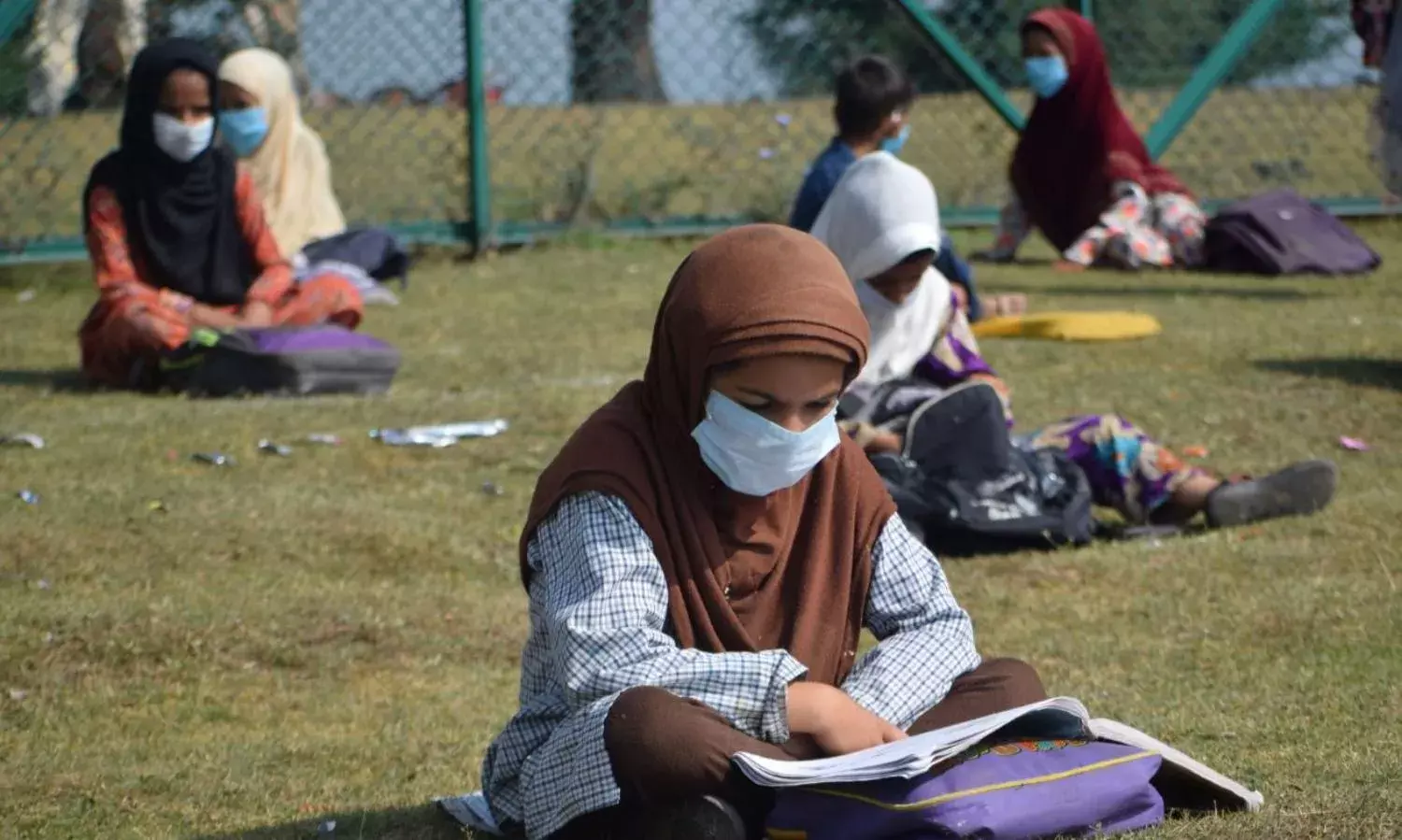J&K Panchayats Claim Lack of Support and Information in Battling COVID-19
Preventing the spread of the virus in rural areas of the newly formed UT

While bringing in Panchayati Raj and promising to empower gram sabhas and panchayats across India, former Prime Minister (PM) Rajiv Gandhi championed the cause of decentralization of power to the lowest levels of the government. However today, gram sabhas and panchayats across the country have been struggling to function effectively.
While many panchayats have reportedly become victims of mismanagement, the gram sabhas and panchayats in Jammu and Kashmir (J&K) face other severe challenges. With reports emerging of the murder of sarpanches in J&K, a fear has gripped panchayat members. A majority of panches and sarpanches allege that their long-pending demand to get adequate security has still not been met.
Meanwhile, the COVID-19 pandemic has presented them with yet another challenge—that of preventing the spread of the virus in rural areas of the newly formed Union Territory.
A sarpanch of a village in north Kashmir, wishing to remain anonymous, said, “We are literally getting nothing.” He complained that, to some extent, grants are coming in, but they are not being properly utilised. “A majority of work is only done by the Block Medical Officers,” he said, further adding that the panchayats are left with no role in these trying times.
“We are just following the guidelines issued by the higher authorities,” he told The Citizen. He further stated that the gram panchayat of his village is not even in a position to sanitise public places. “We got 600-800 masks initially to distribute among villagers, but since then, we have received no such supply,” he said.
“In my block, if a village has a sarpanch, then it does not have any panches, and vice-versa,” he explained, adding that his block comprises a total of 30-35 villages but only 6 or 7 sarpanches. According to him, the volatile state of security in the valley is responsible for this state of affairs.
The situation is not very different in other villages of Kashmir. While walking down a rough road that has not been repaired in ages, Mohammed Iqbal Dar, sarpanch, Rakhi Hygam village in north Kashmir, entered his office that has not received electricity supply for the last five hours.
“It is a common scene here. The villages across J&K face massive power cuts every now and then,” he said.
On the handling of the current pandemic, he asked, “How will the sarpanches contribute to the fight against the virus when they themselves are locked inside their homes?” He alleged that the government has not provided the panchayats with any information related to COVID-19.
“We are not even directed on how to provide basic facilities such as sanitization,” he claimed.
Dar believes that since the abolition of the special status of J&K, the panchayats across the erstwhile state have become defunct. He stated, “The government has not even called a single meeting of sarpanches, on the current health crisis.”
On sanitisation of village areas, he said, “Only block-level employees have been ordered to do that task. But unfortunately, the block level officers are also not doing their job properly.”
“Out of 100%, only four percent of the work is being done. Our panchayat is doing nothing on the ground,” he told The Citizen. The government, he further alleged, is not releasing the funds.
However, narratives differ across the UT, with officials in south Kashmir claiming “proper coordination” with higher authorities.
Ghulam Ahmad Dar, Chairman, Block Development Council (BDC), Bijbehara, stated, “We are working in proper coordination with the higher government authorities.” He said that his BDC had distributed thousands of face-masks to the block residents so far, and has been making people aware of concepts like social-distancing through their awareness programs. He further added, “We sanitise every place where a COVID-19 case is reported.”
Similarly, the sarpanch of Guri village in south Kashmir, Abdul Mohammed stated, “We have distributed masks in the entire village, and our agents visit marketplaces to make people aware of the measures to prevent the spread of this virus.” However, Mohammed differs with Dar on one point—claiming that panchayats were not receiving adequate support.
“We are not getting enough support from the government. The contractors here are highly corrupt,” he said.
The COVID-19 pandemic has called attention to the lack of financial and institutional support to panchayats, effects of which highlight the flaws of the existing fractured system.
Cover Photo: A child studies in a mask in an open air community school in a remote village in central Kashmir’s Budgam district as schools were closed due to the pandemic. Photo by BASIT ZARGAR for The Citizen.



